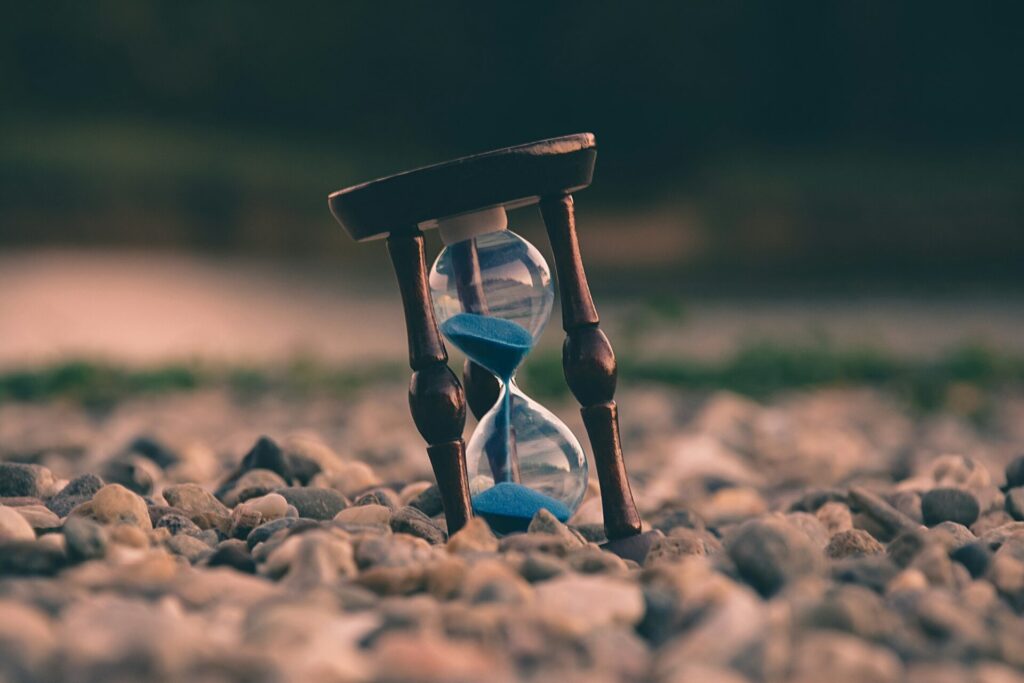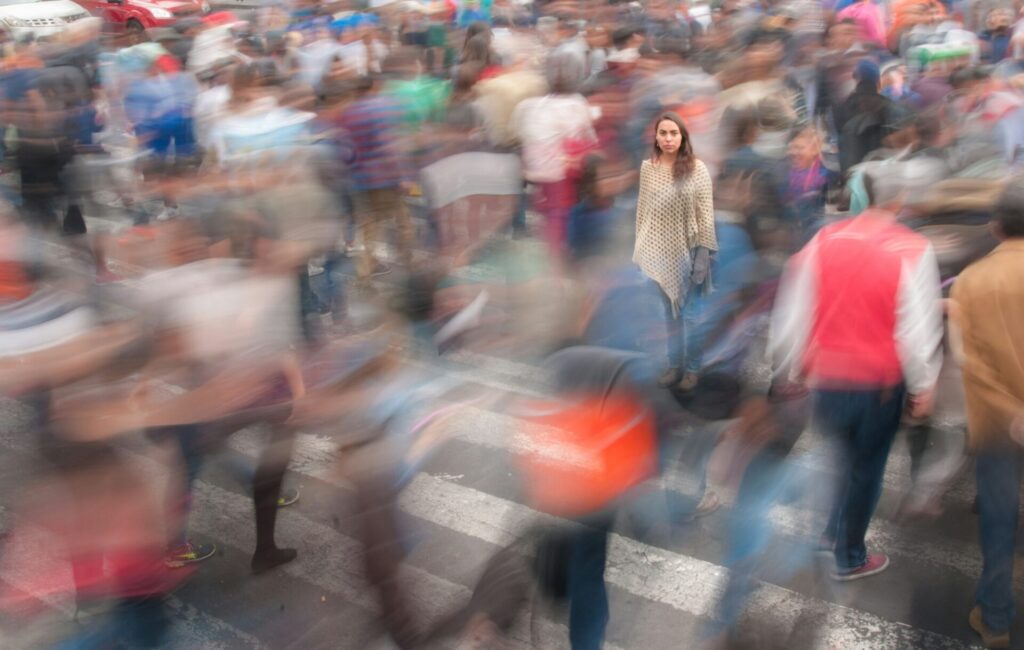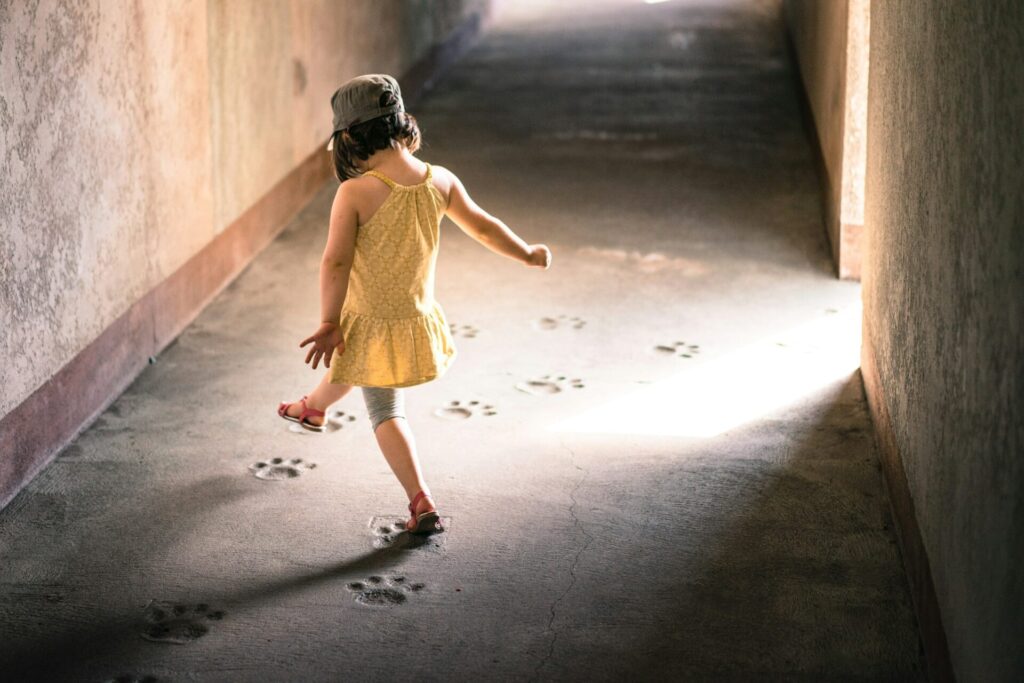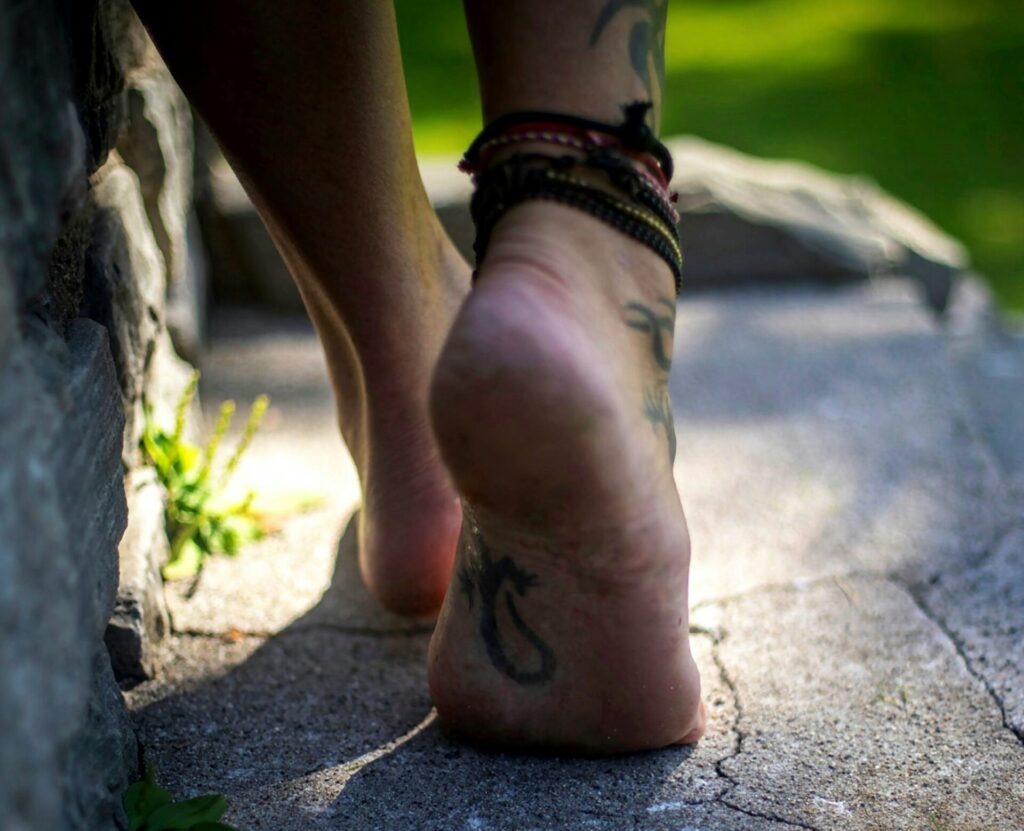
Body + Mind is reader-supported. We may earn an affiliate commission when you buy through some of the links on our site.
You’ve rushed your whole life — to-do lists, notifications, commutes, deadlines and expectations that you must be something or someone to enjoy success. Peace always dangled on the end of a rope ahead of you — always out of reach — until you heard about slow living.
You no longer need to pack rest away in favor of productivity hacks. You’ll still carry responsibility, pay bills, go to work and take out the trash, but now you choose how you do those things. You are about to discover intentionality and what a huge difference this can make in your life as you slow your steps.

You weren’t built to run on high alert 24/7, despite the world convincing you it’s the goal. When you try to burn the candle at both ends all the time, you disrupt your body’s natural cortisol levels because of chronic stress. The result is damage to all parts of your body, habits and natural rhythms. But the power to reset and choose a different, quieter path is in your hands when you decide to follow a slower lifestyle.
Slow living gives you the chance to breathe again, stop and think. It reminds you what it feels like to rest without guilt, move without rushing and savor rather than skim.
The benefits of this lifestyle choice are that you stop cramming your schedule and notice details again. The air smells like rain, food tastes like something again and time feels fuller and satisfying. By reducing the speed you live at, you reduce stress, lower blood pressure and improve focus. Beyond that, it reconnects you to joy — the real kind that doesn’t need an Instagram post to be real.
With this change, you start making better decisions, giving yourself time to think and feel, becoming less reactive and more active. Life is no longer a default mode but a design your uncluttered mind chooses. Relationships deepen, creativity flows and your home feels like a refuge again instead of a temporary stop in life’s race.

No one can give you a slower life, but then nobody can take it away from you either. You decide what matters and how you live. Time is yours to allocate as you see fit. You get to say “no” when something doesn’t align with your values, and “yes” when it does — even if that means doing less, opting out or disappointing someone.
Don’t scroll on — you’re probably thinking that this is all easier said than done. You’ve got bills to pay, responsibilities, an upward trajectory in life you must meet or kids running around you all day. But a simpler, quieter life doesn’t require you to live like a hermit in the forest without Wi-Fi or a toothbrush. It just needs you to choose, act and not react.
Protecting your peace means stopping letting the world rush you into decisions that weren’t even choices and that don’t work for you. Rushing means your executive brain function gets undermined, which results in poor decision-making. A slower pace means being calm enough to hug your children and show them how to breathe and not scream, quieting them so you can have a cup of tea before you embrace work. It requires consideration, self-awareness and chosen action. The benefit is that when you slow down, life does too.

Your life doesn’t require a fire sale or “everything must go” attitude. You just need small acts of rebellion against speed.
Pause before saying yes. Eat slowly. Take the long way home. Be mindful of where your feet are.
Start your mornings gently — no screens or rush. Instead of multitasking, focus on one thing at a time. Let go of urgency when it isn’t necessary. Prioritize rest and make space for boredom. Boredom often leads to clarity. Stepping off the fast lane doesn’t mean falling behind. It means living more deliberately. Less reactive, more rooted.
Slowing things down requires looking at the tiniest cracks in your day. It starts with the following types of choices:

So what does slow living actually look like, day to day? It’s about removing noise — the mental, physical and digital clutter that overwhelms your senses. Maybe that means decluttering your closet, simplifying your skincare routine or saying goodbye to that one app that leaves you more drained than inspired. It develops from your desire toward better outcomes, like an affirmation of your day and your right to live this moment peacefully.
Slow living isn’t perfect. It’s not aesthetic or curated. It’s messy, human and real, and yours to shape.
These are some examples of how people worldwide are slowing down, and you could too:

Slow living is a lifestyle rooted in intentionality. It’s about doing things purposefully, not just because they’re expected or efficient. It means approaching each part of your day — work, meals, movement and rest — with attention and care.
It’s also about resisting hustle culture. You don’t need to earn your worth through endless output. Slow living reminds you that being “you” is enough.
Absolutely. Slowing down helps you reconnect with yourself and your values. It can reduce anxiety, improve relationships and give you a more profound sense of control over your life.
Choosing to slow down is an act of courage in a world designed to keep you distracted and disconnected. You begin to live in alignment, not just in motion.
Because everything around you pushes the opposite.
You’re praised for being busy. You’re rewarded for being available 24/7. It can feel uncomfortable — even guilt-inducing — to stop and do less. But difficult doesn’t mean wrong. It just means unfamiliar.
Slow living asks you to trust that you don’t have to chase every opportunity or meet every expectation. It takes time to unlearn urgency. But it’s worth it.
You don’t need to wait for the weekend or a life reset to begin living slowly. Start with one moment.
Turn off a notification, take a deeper breath, say “no” to one extra obligation, watch the clouds move, make a simple dinner, eat without multitasking and let silence be part of your day.
Slow living isn’t about perfection. It’s about presence.
Bit by bit, choice by choice, you can create a life that feels less rushed — and more yours.
Your email address will only be used to send you our newsletter, and at any time you may unsubscribe. For more information, see our Privacy Policy.